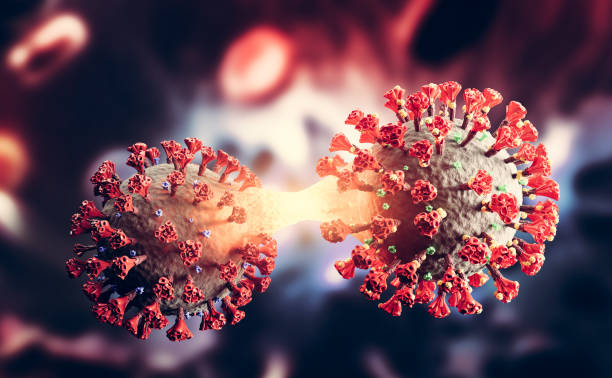After two years of the COVID-19 pandemic, many people wonder how this disease affects the body in addition to respiratory problems. Around the world, many studies reported tons of various and unexpected side effects. Do COVID-19 cause hair loss?

Table of Contents
What is hair loss?
We lose hair every day as a normal part of the hair life cycle. Losing up to 100 hair strands per day is normal and does not lead to any hair issues. There are two scenarios where hair loss becomes a problem:
- Losing more than 100 strands per day leads to a loss of density and ultimately bald spots on certain areas0
- Losing an average amount of strands daily, but they are not replaced by new hair because the hair growth is too slow, causing loss of hair density and ultimately bald spots.
Could COVID-19 affect the number of strands lost daily or slow hair growth?
Do COVID-19 cause hair loss? The lack of distance
Centers for Disease Control and Prevention (CDC) listed hair loss as a potential long-term effect of COVID-19. However, this disease is new, and we lack the distance to analyze the side effects properly. Moreover, the few studies conducted about COVID-19 causing hair loss are minimal.
In November 2020, a study searched the side effects of COVID-19 exposure on 63 people, which is relatively restricted for such a study. Out of 58 patients, 14 noted hair loss. On average, post-COVID hair loss was visible 58.6 days after the beginning of the infection. Of the 14 concerned subjects, five suffered from temporary hair loss while the nine others kept suffering from hair loss at the end of the study.
However, those results are to take with caution as the number of subjects was low, so it cannot determine if COVID-19 cause hair loss. We also lack information about the individuals involved in this study. Nine of them suffered from long-lasting hair loss; are they male or female? Younger or older than 30?
Most men suffer from hair loss in their lifetime as male hormones tend to cause the hair to fall.
COVID-19 and telogen effluvium
Telogen is the last of the three stages of the hair life cycle. It is a rest phase lasting for two or three months. At the end of this telogen phase, the hair falls. It grows back following the hair life cycle and takes a few months to be visible as the hair grows approximately one centimeter per month.
Telogen effluvium is an induced change of the hair cycle phase, causing the hair to fall about two months after the beginning of the effluvium. The causes are various: stress, hair surgery, lack of blood oxygenation. Fever is also a potential cause of telogen effluvium.
In some cases, telogen effluvium is chronic.
COVID-19 mainly involves fever and stress, which may cause telogen effluvium. However, the virus itself does not cause hair loss, and it is more a psychosomatic reaction to the virus-induced stress.
Severe COVID-19 and hair loss
Another research conducted in May 2020 on people who contracted a severe form of COVID-19 and were hospitalized showed that most of them (67%) suffered from androgenic alopecia.
Once again, those results are controversial for many reasons. First, this study did not involve a control group of people with similar profiles who have not been hospitalized for severe COVID-19. Among the 175 subjects of this study, how many were men and how many were women is not disclosed. Androgenic alopecia affects 70% of men globally.
Another study, conducted in July 2020, compared the balding patterns of 336 men hospitalized for COVID-19 severe cases and 1 605 men hospitalized for other conditions.
The conclusions were that more bald patients were more prone to be hospitalized with COVID-19. However, those conclusions may have a bias. Androgenic alopecia, the most common cause of baldness in males, starts around 30 and evolves over the years. The baldest patients would be the oldest, and many studies proved COVID-19 to be more severe on older people. More older and balder people are hospitalized with COVID-19 than with other various pathologies.
Do COVID-19 cause hair loss? Those studies cannot scientifically prove coronavirus causes long-term hair loss.





